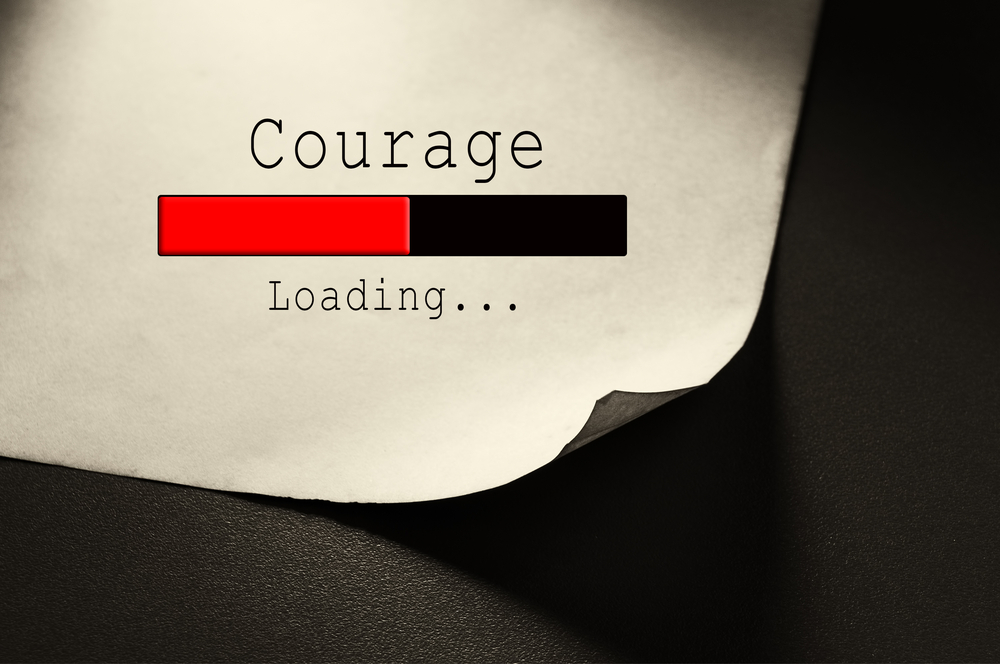In any walk of life showing strength in the face of fear is a trait desired by so many and having courage in the workplace is just as important. Unlike certain unteachable skills, courage is a behaviour deep within us all and with the correct teaching and encouragement, one that can flourish. Courage is the first virtue of organisational performance and in a rapidly changing global environment, where we are faced with difficult challenges and a constant demand for innovation, there is an accelerating need for brave leaders and courageous cultures.
“Fear is a powerful thing. It can make us do things we might not otherwise do, and it can make us NOT do the things we should be doing. We all have fears of some kind or another. How we deal with them is what is most important” – Wendy Silver, Beyond the Workplace HR, Concord, Massachusetts.
Bravery, or courage is the ability to overcome a situation that frightens us. Most of us feel brave and afraid at the same time. This combination leads to a sense of vulnerability, we feel vulnerable. We are led to believe this vulnerability is a weakness, that instead we need to be brave, but the reality is you cannot have courage without vulnerability. Courageous leaders embrace their vulnerability and encourage discussion and conversation within their organisation defined by a commitment to lean into vulnerability and create a culture inspiring courage.
There are three common forms of courage in the workplace. Courage to try something, particularly when you have not done it before, courage to trust your colleagues and the courage of voice, to tell the truth no matter how hard it may be for others to hear. In essence this all sounds relatively simple, but in practice, when fear and vulnerability are present, this becomes an almighty challenge for all in the organisation.
Detrimental Effects of a Lack of Courage in the Workplace
To understand why being courageous is an essential quality to have within the workplace we must first look at the issues that can arise from a lack of it. Certainly, it is easier not to do something than to do it, which is one reason why many people prefer to stay in their comfort zones, but this discourages innovation and positive organisational change. As people we are inclined to avoid tough conversations. The consequence is a lack of honesty, clarity and engagement which leads to an increase in stagnated relationships within organisational hierarchy. Furthermore, a lack of connection and empathy from leaders diminishes the trust people have in them; conversation is key.
Remaining in our comfort zones means not enough people are taking smart risks or creating and sharing ideas to meet changing demands. This reiterates the importance of communication, if employees are afraid of being ridiculed for trying something new but failing, they will be reluctant to do it again. Furthermore, individual perfectionism keeps people from taking smart risks to maintain a blemish-free profile. This issue with this is that it encourages a plateau in operations rather than the insatiable need for innovation due to a fear of looking bad. In addition, people are choosing to opt out of vital conversations surrounding significant issues such as diversity and inclusivity because they fear they may say something wrong. Choosing personal comfort over difficult conversations, just because we can, is an issue that many organisations are currently facing. How can organisations progress with meaningful and lasting change if most of their workforce are reluctant to engage in any vital conversations?
Courage in Leaders
One of the most important tasks a leader faces is to encourage a courageous culture throughout their organisation, but how do they do this? Rather than putting individuals down for making mistakes, courageous leaders encourage people to make mistakes, rest and bounce back. Being resilient is a key skill to be successful and brave leaders are keen to praise this. Furthermore, courageous leaders focus on problem-solving and finding the cause of an issue rather than finding a quick fix. Brave leaders remain in the problem to determine the cause for as long as it takes, if you simply paper over the cracks it is highly likely the issue will resurface.
Being a brave leader is about communicating opinions and feelings on controversial topics despite the risk. Supporting a cause that impacts employees and the community sends a strong message about values and a commitment to those values. Organisational fears often stem from the fears of its leaders and can spread throughout the company culture. By acting in a way that demonstrates these different types of courage and by fostering an environment that encourages them, leaders can make their organisational culture a courageous one where employees innovate and grow both personally and professionally.
“At heart of all this, at the core of being brave, is communication and transparency, and being open and honest with employees.”
Courage in Employees
Fear and uncertainty amongst employees promote demotivation and unproductiveness. With support and a sense of security organisations can enable employees to gain self-confidence that can replace uncertainties. By engaging employees and inspiring the courage to take part and take smart risks organisations will benefit. Engaged workers generate more profit, create stronger customer relationships and are more productive than disengaged workers. For example, for a salesman knocking on the door of prospects over and over, rather than just sending an email, is a much scarier thought as it is easier to handle rejection from the other side of a computer screen than face-to-face. However, once you can overcome that fear through encouragement and inspiration, the results will be much more fruitful. Ultimately this still relies heavily on the culture of the organisation created and maintained by leaders, but there is no doubt that developing courage in the workplace will improve productivity and innovation and ultimately strengthen the organisation.





